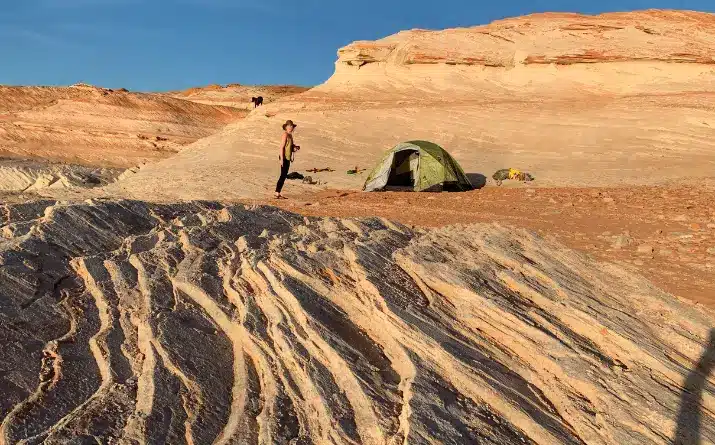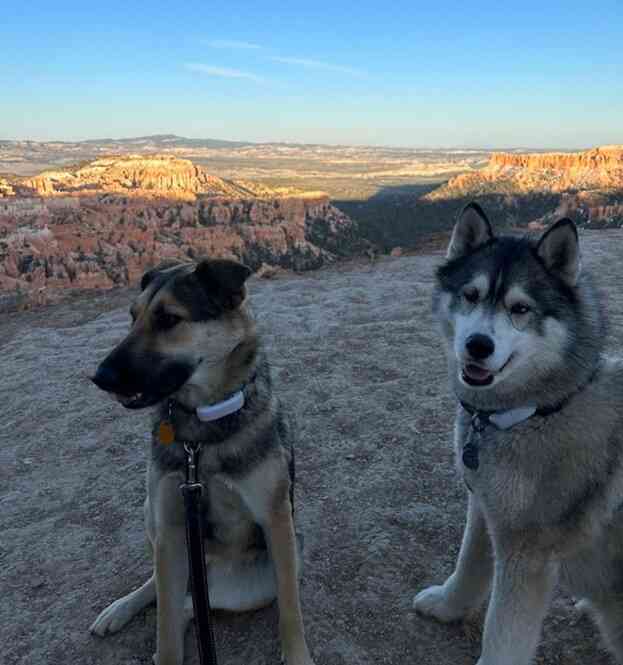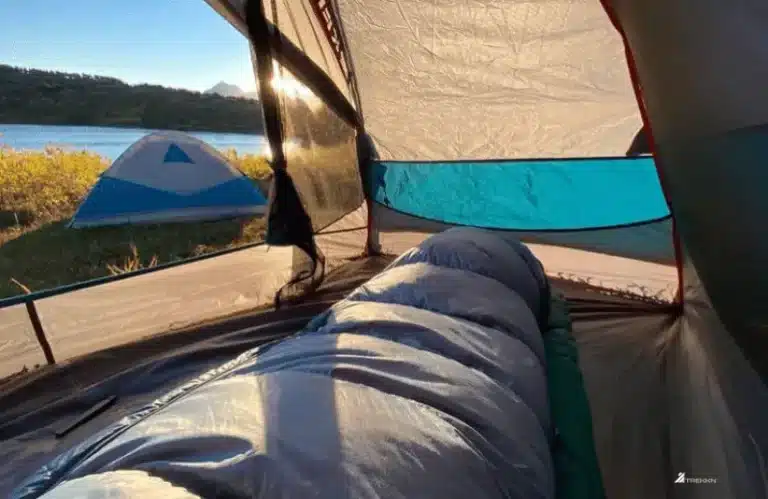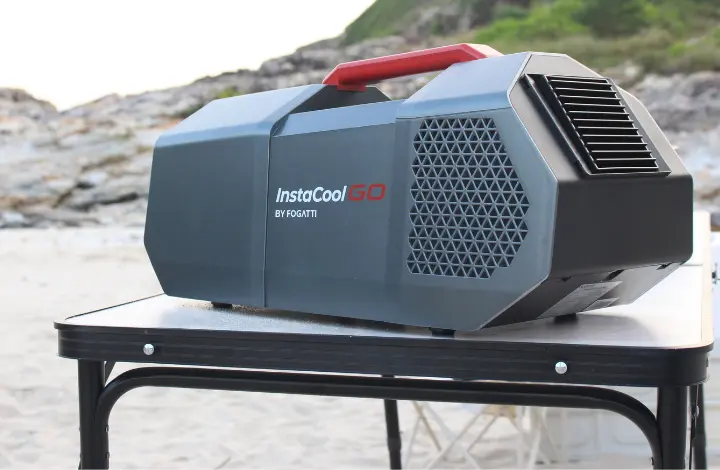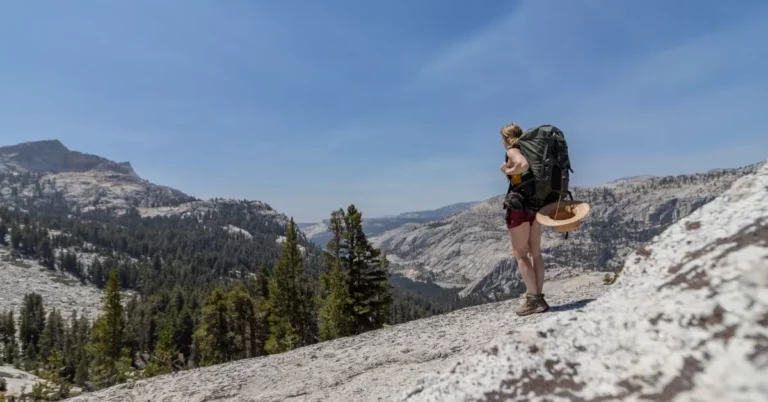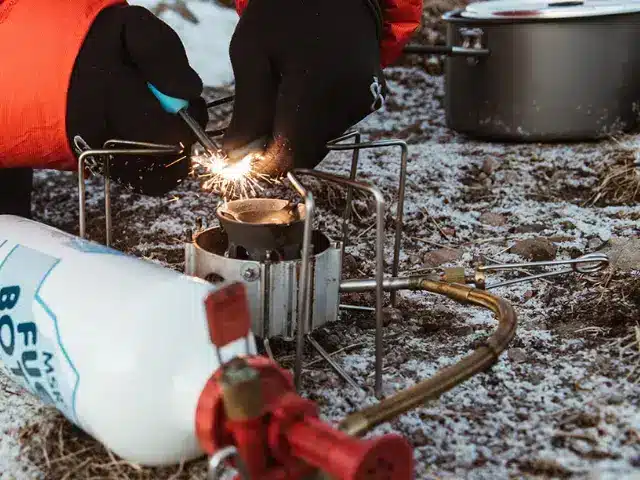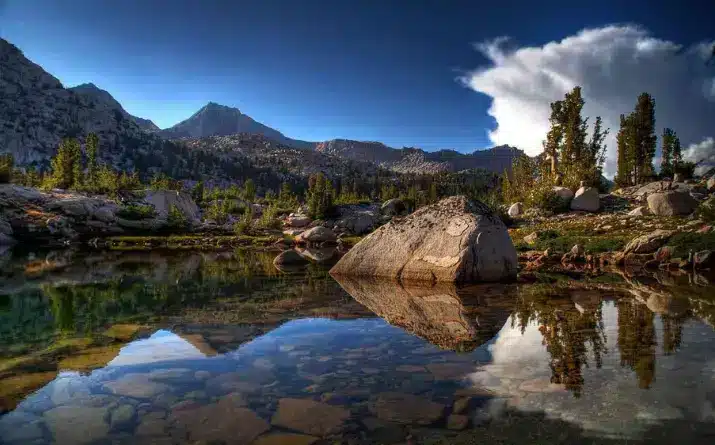Important Camping Etiquette Tips You Should Know
Camping etiquette might sound silly because you’re supposed to be outdoors and experiencing the wild, right? Maybe, but there are certain considerations you should have before you find a campsite. We lay out five simple tips to follow for the sake of other campers as well as for the great outdoors.
Complete Guide to Campsite Etiquette
Here’s a quick etiquette guide to camping to help you do your part every time you get out and adventure!
Pack Out What You Pack In
It sounds like common sense to take everything that you bring into a campsite back out with you, but I’ve had to pick up campsite trash, leftover food, broken glass bottles, and even sleeping bags and tents, prior to setting up my camp regularly.
It’s important to take everything with you every time you pack up for camp as leaving food, water, and even fires that are not fully put out can create major problems for humans and wildlife.
Also, it’s just not cool to leave your stuff behind with the expectation that someone else will take care of it. Any campers who arrive at the site after your stay will want to arrive to a clean campsite. I believe anyone reading this would have the same hope and expectations.
LEAVE NO TRACE PRINCIPLES
A golden rule of exploring and camping outdoors is to follow the core principles of Leave No Trace. It’s important to minimize the impact our outdoor activities and adventures have on nature. Here are the seven Leave No Trace Principles:
DISPOSE OF EVEN THE SMALLEST ITEMS
Please remember that even though cigarette butts are small, they should be disposed of properly. Nobody wants to see dirty old cigarette butts littering the trail or the campsite. Moreover, flicking a cigarette butt is a fire hazard. Don’t take a chance of causing a forest fire. Pack it out.
Likewise, dispose of bottle caps and other small items. While they may seem too small to matter, every item left behind has an impact on nature.
Related Reading: Leave No Trace is Important
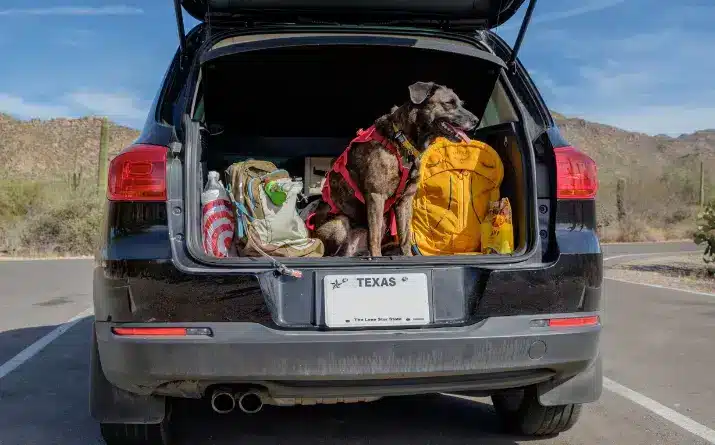
Be Mindful of the Noise Levels
It’s important to think about how much noise you and your group might be creating at camp.
This probably isn’t everyone’s favorite rule at campsites. I understand people want to get out of town and have a good time being wild and free. But, loud noises can become a real issue.
Few people who go camping want to listen to someone else’s loud music blasting through the night. Even fewer people want to hear gunshots in the background. Yet, unfortunately, this actually happens a lot on BLM land after dark. Even the various hooting and hollering can put a real sour note on someone’s otherwise peaceful outdoor adventure.
RESPECT YOUR CAMPSITE NEIGHBORS
There have been many nights when I have laid awake until the early morning in my tent or have had to move campsites entirely because my campsite neighbors were partying a little too hard for me to sleep.
Many of us go camping for the solitude and peace that nature provides. As camping has become more popular, there are a lot more Bluetooth speakers, constant generator use, and groups of people.
QUIET HOURS
Remember that you’re not the only camper in most campgrounds or campsites, even if they are off the beaten path. It’s good to keep in mind that quiet hours usually start at 8:00 pm. It’s best to follow that rule everywhere you go to be considerate to all who are trying to get away from the city!
Use Non-Breakable Containers
The amount of shattered glass at campsites is alarming. For someone with dogs (and presumably, anyone with kids would agree), bringing glass bottles or containers with you is a big no-no.
BROKEN GLASS CAN RUIN A CAMPING TRIP
Glass shatters too easily and it’s difficult to pick up all the pieces. It’s always best to bring plastic bottles or aluminum cans if you are looking to have a beverage while you’re at a campsite. Not only can glass injure humans trying to camp, but I’ve ripped holes in tents, sleeping bags, food containers, and more because there have been glass pieces in places I never would have imagined them to be while we’re out adventuring.
Please consider bringing reusable plastic or aluminum instead of glass when you head out on your next camping trip! Another benefit of using non-glass material is to reduce the amount of weight you carry, whether in the RV or in your backpack.
Know Campsite Rules & Regulations
It’s not always easy to know the rules and regulations of each campsite, especially if you’re an off-roader like me. But, it’s our responsibility to understand exactly what is and isn’t allowed at a campsite. This is especially true if we plan to stay overnight.
Most campsites ask that you don’t set up camp near a water source. Generally speaking, campgrounds and parks establish a no-camping zone within 200 feet of any body of water. Campsites prohibit shooting weapons of any kind. And many campsites restrict wood fires, especially during certain times of the year.
When in doubt about one of these major guidelines, the safest course of action is to assume it’s prohibited. I recommend that you always do your best to respect nature. Set up camp, store food, and dispose of bodily waste far away from high-traffic wildlife areas and water sources.
CAMPFIRES
It’s also important to always be aware of the dry season when there is a higher risk of forest fires. Again, if you’re not entirely sure when that is or what fire restrictions are in place, don’t start a fire!
Moreover, if you do plan to start a fire (when campground rules allow), always use an established fire ring. Also, make sure you are fully able to put it out after you and your friends are done enjoying a great time for the night.
It’s a good idea to have a bucket of water on hand. That’s a good tip for a couple of reasons. For one, you will be prepared if there are any issues with the campfire. Another reason is that the best way to ensure a fire is completely out is by dousing every ember and coal with water.
Here’s another campground etiquette tip: never leave a campfire unattended. I have found many fires not fully extinguished at campsites I choose for the night. When that happens, I have to use my water or spend time finding enough dirt to fully put out those leftover fires.
As an alternative to wood fires, consider packing a portable propane fire pit. These are easy to start, don’t create any smoke or sparks, and are simple to turn off completely.
Related Reading: The Best Portable Propane Fire Pits
Be Respectful of Other Campers and Wildlife
Whether you’re encountering humans or wildlife, be a polite camper and respectful of others. It will get you much further and keep you safer than testing the waters. If you feel unsafe due to other campers, it’s easier to pack up and leave than inserting yourself into an unsafe situation.
GOOD NEIGHBOR
Avoid any kind of mishap or misunderstanding with other people. Stay out of other people’s campsites. Whether staying overnight at an RV park, private campground, or on public lands, do not walk through your neighbor’s campsite. Use common courtesy and respect other’s personal space.
Always pick up after yourself and your pets. Another important tip is to be considerate of how you use shared resources, including pit toilets, water spigots, and other public-use items.
WILD ANIMALS
If you’re encountering local wildlife, be sure to give them enough space to run in any direction that allows you to move out of the way at any time. Always keep your food locked up in a bear box if you are in bear country, hang it up in a tree, or in the car if you are camping in a tent. Where there are food and water sources, the animals will come including creepy crawlies like spiders, snakes, insects, bears, and more.
Never pet, feed, or approach wildlife. You will learn the hard way that teeth and horns are not your friend. If you need more information on how to avoid or deal with wildlife encounters, read through the resources published by the National Park Service about how to navigate wildlife encounters.

Related Reading: Hiking Trail Guidelines and Etiquette
Camping Etiquette is Simple and Important
When camping, there’s really only one thing you need to remember: respect everyone and everything around you. If you wouldn’t do it at home, or at a friend’s or neighbor’s house, don’t do it at a campsite.
ADDITIONAL CAMPING ETIQUETTE TIPS
Here are a few simple unspoken rules to keep in mind when thinking about basic camping etiquette:
We want campsites (especially the free and government funded ones) to stay open, clean, and accessible for all people who want to enjoy an outdoor lifestyle. It’s important to do our part every time we step outside so that we and all of our outdoorsy friends can all continue to sleep under the stars and enjoy nature the way it was intended.
Get Outdoors and Enjoy Your Camping Adventures
Whether your group is filled with first-time campers or you’re already an experienced outdoor enthusiast, we hope our etiquette tips are helpful reminders of how to be a good campground neighbor.
Simple actions can help ensure everyone has a positive camping experience. And, as the love of the outdoors increases, I hope that good camping etiquette keeps pace.
Related Reading
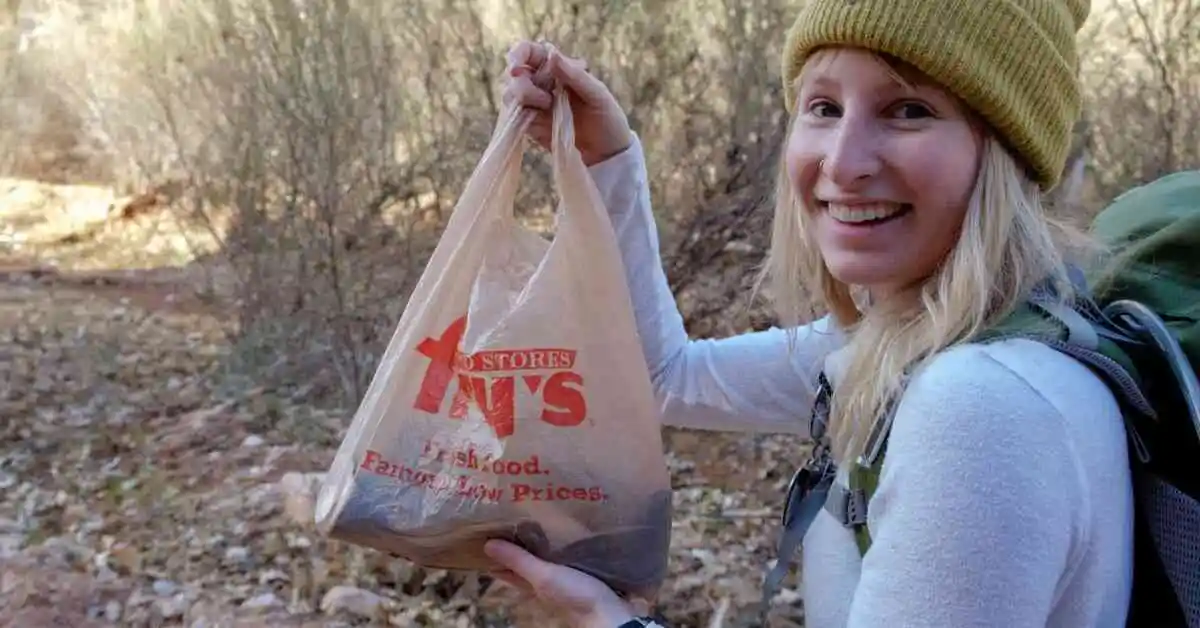
Erin is rooted in South Dakota, but wanders every chance she gets to see the beauty that nature holds. From hiking to climbing, there’s not an adventure she’ll turn down. After renovating her 1976 Airstream Argosy, Erin knows the ins and outs of living life on the road and trailer maintenance. Whether she’s on the road with her dog and partner or at home curled up with a good book, Erin is always planning her next adventure because life is meant to be lived outdoors.


